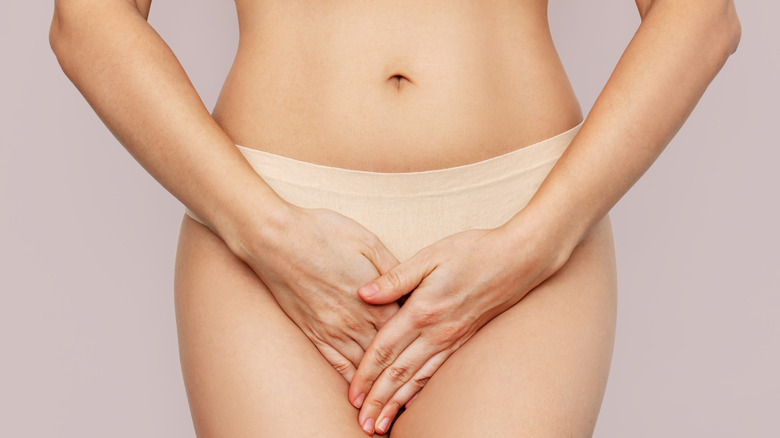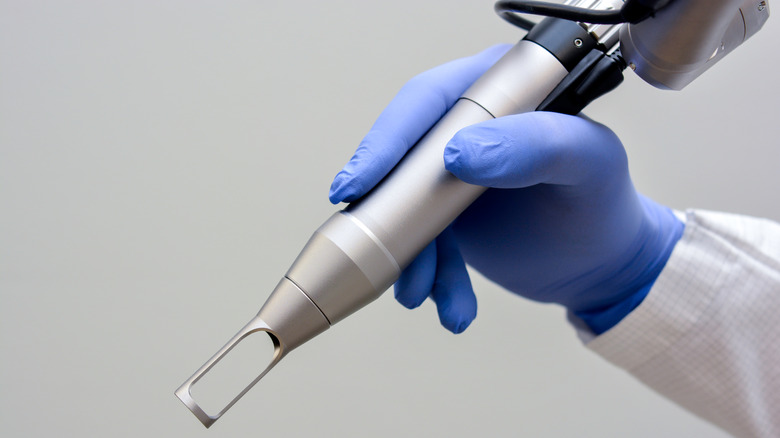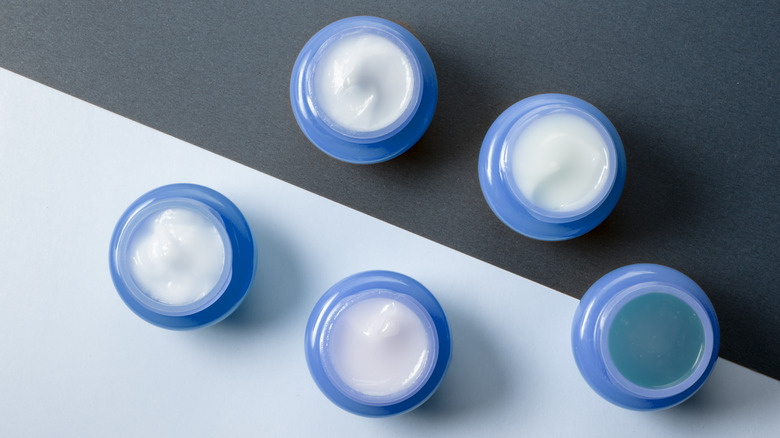What Is Intimate Bleaching And Why You Should Avoid It
Despite what current beauty standards would have you believe, we are all supposed to come in different shapes, sizes and colors. And that goes for our private parts as well! Yet, the misguided idea that only one kind of vagina and vulva is beautiful and healthy has got some women thinking that they need to alter the appearance of their genitals with unsafe cosmetic procedures.
If the idea of messing with the appearance of your genitals to appease someone else's idea of beauty makes you protectively cup your hands around your lady bits, you're not alone. However, a 2019 article published in Ethical Issues in Women's Healthcare points out that the number of women having elective genital cosmetic surgery is on the rise due to "low genital self image."
The American College of Obstetricians and Gynecologists explains that elective genital cosmetic surgery is a sweeping term used to describe a number of procedures including labiaplasty, vaginoplasty, clitoral hood reduction, perineoplasty, and vaginal rejuvenation — which can include a few of the previously mentioned procedures, as well as intimate bleaching.
Intimate bleaching is purely cosmetic and provides no medical benefit
Many women who struggle with body image become fixated on the idea of having an aesthetically "perfect" vagina and vulva. But what constitutes "normal" in that area? For many women, the skin surrounding their (perfectly normal) vulva may be a little darker than the skin on the rest of their body. This can happen for variable reasons, including hormone changes, friction, and aging (per Healthline). These changes are not only totally normal, but should be expected. And yet because of the unrealistic expectations many women have about what their body should look like, some are seeking to lighten their vuvular skin in hopes of making it match the rest of their bodies.
Intimate or vaginal bleaching is an elective procedure that involves the lightening of the vulva and bikini area through the use of creams, lasers, or chemical peels (per Medical News Today). Other than the potential perk of improving one's self image, vaginal bleaching offers absolutely no health benefits. On the contrary, it could be quite dangerous, and responsible healthcare providers discourage the use of lasers, creams, and chemical peels to lighten the genitals. Here's why.
Risks associated with intimate bleaching
While vaginal bleaching has been growing in popularity, the American College of Obstetricians and Gynecologists issued a 2007 opinion published in Obstetrics and Gynecology stating that procedures like intimate bleaching were neither medically necessary, nor proven to be effective. What's more, the U.S Food and Drug Administration (FDA) has not approved any vaginal rejuvenation procedures, and has even warned of their potential dangers.
Healthline explains that over-the-counter products used to lighten the vulva can produce adverse reactions like irritation, swelling, and burning, and can even increase the risk of vaginal infections. When lasers and bleaching creams are used to lighten the skin, there is also the potential of burning the vulva, which can leave lasting scars that may interfere with sensation. If scarring happens near the clitoral hood, you run the risk of the clitoris irreversibly fusing to the clitoral hood, which can make arousal extremely painful.
Beyond the physical risks of vaginal bleaching, Medical News Today also points out that there are social implications, noting that the perpetuation of skin lightening is detrimental to people of color.



